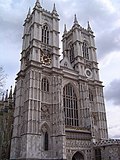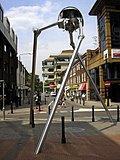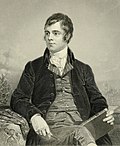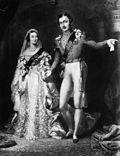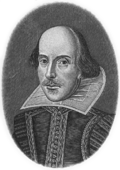Portal:United Kingdom
The United Kingdom Portal
 |
 |
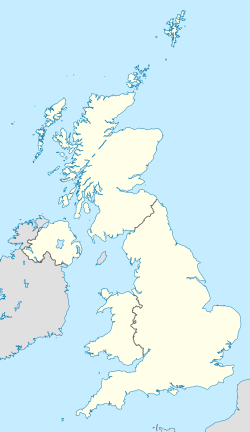
| |
The United Kingdom of Great Britain and Northern Ireland, commonly known as the United Kingdom (UK) or Britain, is a country in Northwestern Europe, off the coast of the continental mainland. It comprises England, Scotland, Wales, and Northern Ireland. The UK includes the island of Great Britain, the north-eastern part of the island of Ireland, and most of the smaller islands within the British Isles, covering 94,354 square miles (244,376 km2). Northern Ireland shares a land border with the Republic of Ireland; otherwise, the United Kingdom is surrounded by the Atlantic Ocean, the North Sea, the English Channel, the Celtic Sea, and the Irish Sea. The UK maintains sovereignty over the British Overseas Territories, which are located across various oceans and seas globally. The United Kingdom had an estimated population of over 68.2 million people in 2023. The capital and largest city of both England and the United Kingdom is London. The cities of Edinburgh, Cardiff, and Belfast are the national capitals of Scotland, Wales, and Northern Ireland, respectively.
The UK has been inhabited continuously since the Neolithic. In AD 43, the Roman conquest of Britain began; the Roman departure was followed by Anglo-Saxon settlement. In 1066, the Normans conquered England. With the end of the Wars of the Roses, the English state stabilised and began to grow in power, resulting by the 16th century in the annexation of Wales, and the establishment of the British Empire. Over the course of the 17th century, the role of the British monarchy was reduced, particularly as a result of the English Civil War. In 1707, the Kingdom of England and the Kingdom of Scotland united under the Treaty of Union to create the Kingdom of Great Britain. In the Georgian era, the office of prime minister became established. The Acts of Union 1800 incorporated the Kingdom of Ireland to create the United Kingdom of Great Britain and Ireland in 1801. Most of Ireland seceded from the UK in 1922 as the Irish Free State, and the Royal and Parliamentary Titles Act 1927 created the present United Kingdom.
The UK became the first industrialised country and was the world's foremost power for the majority of the 19th and early 20th centuries, particularly during the Pax Britannica between 1815 and 1914. The British Empire was the leading economic power for most of the 19th century, a position supported by its agricultural prosperity, its role as a dominant trading nation, a massive industrial capacity, significant technological achievements, and the rise of 19th-century London as the world's principal financial centre. At its height in the 1920s, the British Empire encompassed almost a quarter of the world's landmass and population, and was the largest empire in history. However, its involvement in the First World War and the Second World War damaged Britain's economic power, and a global wave of decolonisation led to the independence of most British colonies. (Full article...)
Featured article
"Something" is a single released by The Beatles in 1969, and featured on the album Abbey Road. "Something" was the first song written by George Harrison to appear on the A-side of a Beatles single, sharing top billing on the double A-side single with "Come Together" in the United States. It was one of the first Beatles singles to contain tracks already available on a long playing (LP) album, with both "Something" and "Come Together" having appeared on Abbey Road. "Something" was the only Harrison composition to top the American charts while he was a Beatle. Although John Lennon and Paul McCartney—the two principal songwriting members of the band—both praised "Something" as among the best songs Harrison had written, the recording of the song was marked by acrimonious spats. Despite this, the single managed to top the Billboard charts in the United States, and also entered the top 10 in the United Kingdom. After the breakup of The Beatles, the song was covered by many artists including Elvis Presley, Shirley Bassey, Frank Sinatra, James Brown, Julio Iglesias, Smokey Robinson, and Joe Cocker, becoming the second-most covered Beatles song after "Yesterday." (more...)
Featured biography
John Douglas (11 April 1830 – 23 May 1911) was an English architect who designed over 500 buildings in Cheshire, North Wales, and northwest England, in particular in the estate of Eaton Hall. He was trained in Lancaster and practised throughout his career from an office in Chester. Initially he ran the practice on his own, but from 1884 until two years before his death he worked in partnerships with two of his former assistants.
Douglas's output included new churches, restoring and renovating existing churches, church furnishings, new houses and alterations to existing houses, and a variety of other buildings, including shops, banks, offices, schools, memorials and public buildings. His architectural styles were eclectic. Douglas worked during the period of the Gothic Revival, and many of his works incorporate elements of the English Gothic style. He was also influenced by architectural styles from the mainland of Europe and included elements of French, German and Dutch architecture. However he is probably best remembered for his incorporation of vernacular elements in his buildings, in particular half-timbering, influenced by the black-and-white revival in Chester. Other vernacular elements he incorporated include tile-hanging, pargeting and the use of decorative brick in diapering and the design of tall chimney stacks. Of particular importance is Douglas's use of joinery and highly detailed wood carving.
Throughout his career he attracted commissions from wealthy landowners and industrialists, especially the Grosvenor family of Eaton Hall. Most of his works have survived, particularly his churches. The city of Chester contains a number of his structures, the most admired of which are his half-timbered black-and-white buildings and Eastgate Clock. The highest concentration of his work is found in the Eaton Hall estate and the surrounding villages of Eccleston, Aldford and Pulford. (Full article...)
General images -
Subportals
WikiProjects
Things you can do
- Visit the British Wikipedians' notice board.
- The noticeboard is the central forum for information and discussion on editing related to the United Kingdom.
- Comment at the British deletion sorting page.
- This page lists deletion discussions on topics relating to the United Kingdom.
Featured pictures
Did you know -

- ... that South African president Jacob Zuma requested a tour of a Sainsbury's supermarket during his state visit to the United Kingdom in 2010?
- ... that former Scottish Conservative leader Ruth Davidson said that she would swim in Loch Ness naked if the SNP won more than 50 seats at the 2019 United Kingdom general election?
- ... that when Sarah Jane Baker was released after 30 years, she was the United Kingdom's longest serving transgender prisoner?
- ... that New Zealand composer Maewa Kaihau sold her rights to the song "Now is the Hour" for £10, a decade before it became a hit in the United Kingdom and United States?
- ... that Dublin property developer Harry Crosbie received an OBE from the British ambassador to Ireland, partly for entertaining Elizabeth II with his showbiz contacts?
- ... that the 1st Armoured Division of the British Army chose a white rhinoceros on a black oval as their insignia?
In the news
- 4 May 2025 –
- Five people, including four Iranian citizens, are arrested for planning to carry out a terrorist attack at a single location in London, United Kingdom. Separately, three other Iranian men are arrested in London on suspicion of a national security offense as part of an unrelated investigation. (CTV News)
- 1 May 2025 –
- The world's oldest person, Brazilian nun Inah Canabarro Lucas, dies at the age of 116 years and 326 days. The new oldest living person is British supercentenarian Ethel Caterham, who is the last person born in the 1900s decade, the last living subject of King Edward VII, and the oldest British person ever. (BBC News) (The Telegraph)
- 1 May 2025 – 2025 United Kingdom local elections
- The United Kingdom holds local elections, as well as a parliamentary by-election in the Runcorn and Helsby constituency. (BBC News)
- 16 April 2025 –
- The United Kingdom suspends the import of cheese and meat products from the European Union to prevent the spread of foot-and-mouth disease. (BBC News)
- 16 April 2025 – Transgender rights in the United Kingdom, For Women Scotland Ltd v The Scottish Ministers
- The Supreme Court of the United Kingdom rules that legal gender is based upon biological sex for the purposes of the Equality Act 2010. (BBC News)
- 15 April 2025 – Sudanese civil war, Foreign aid to Sudan
- The European Union and its member states pledge €522 million (US$590 million) and the United Kingdom pledges £120 million (US$141 million) in humanitarian aid to Sudan to deliver food and supplies to over 650,000 internally displaced Sudanese people affected by the fighting between the Rapid Support Forces and the Sudanese Armed Forces. The two groups also call for an immediate ceasefire to end the war. (DW) (AP)
Categories
Other UK-connected Wikipedias
Wikimedia
The following Wikimedia Foundation sister projects provide more on this subject:
-
Commons
Free media repository -
Wikibooks
Free textbooks and manuals -
Wikidata
Free knowledge base -
Wikinews
Free-content news -
Wikiquote
Collection of quotations -
Wikisource
Free-content library -
Wikiversity
Free learning tools -
Wikivoyage
Free travel guide -
Wiktionary
Dictionary and thesaurus






